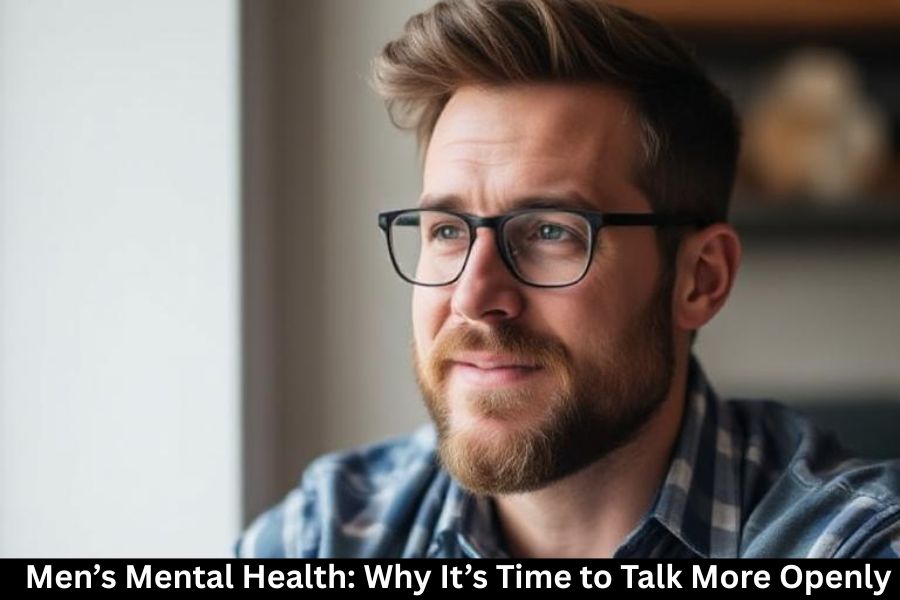Men around the world are dealing with mental health battles that no one sees. Many feel the pressure to appear tough, composed, and emotionless—even when their internal world is crumbling. This silence has become a crisis all on its own.
Why the conversation is overdue
Despite increasing awareness, men’s mental health remains under-discussed. For too long, society has expected men to “handle it” on their own. But times are changing, and it’s finally becoming clear that talking openly isn’t weakness—it’s freedom.
Understanding the Stigma
Cultural expectations of masculinity
Growing up, many boys hear phrases like “man up” or “stop crying.” These ideas follow them into adulthood, shaping how they handle stress, pain, and emotional struggles.
How stereotypes hold men back
The belief that men should always be strong creates a dangerous barrier. It discourages vulnerability and keeps men from expressing how they really feel.
“Be strong” and its hidden impact
Strength is often misunderstood. Real strength isn’t hiding emotions—it’s understanding them. The old version of strength leaves men isolated, misunderstood, and emotionally exhausted.
The Realities Men Face
Depression in men
Depression often looks different in men. Instead of sadness, it may show up as irritability, anger, or numbness. Because of this, it can go unnoticed—sometimes even by the person experiencing it.
Anxiety and emotional suppression
Men are taught to push feelings down, but suppressed emotions don’t disappear. Anxiety builds, stress spreads, and men may feel constantly overwhelmed without knowing why.
Substance abuse as coping
When emotions feel too heavy to handle, many men turn to alcohol or drugs. These temporary escapes often lead to long-term damage—physically, mentally, and socially.
Warning Signs Often Overlooked
Behavioral changes
Sudden outbursts, irritability, or becoming unusually quiet can all point to deeper struggles.
Physical symptoms
Headaches, fatigue, stomach issues, and even chronic pain can be tied to mental health. The mind and body are deeply connected.
Social withdrawal
When men begin isolating themselves, avoiding social events, or pulling away from loved ones, it’s a sign that shouldn’t be ignored.
Why Men Don’t Seek Help
Fear of judgment
Many men worry they’ll be seen as weak if they open up. This fear stops countless individuals from seeking the help they desperately need.
Lack of emotional vocabulary
A surprising number of men struggle to label their emotions. If you can’t describe how you feel, asking for help becomes even harder.
Misconceptions about therapy
Therapy isn’t about lying on a couch talking about your childhood (well, not always). It’s about gaining tools to handle life better—something everyone benefits from.
The Importance of Open Conversations
Breaking generational cycles
Every honest conversation chips away at outdated beliefs. When fathers, brothers, and sons open up, they change the future for the next generation.
Normalizing emotional honesty
Talking about feelings shouldn’t be rare. The more openly men speak, the more normal it becomes.
Supporting men in daily life
A simple “Are you okay?” or “I’m here if you need to talk” can make a world of difference.
How Society Can Help
Changing the narrative
We must redefine masculinity. Strength isn’t silence—it’s courage, honesty, and vulnerability.
Creating safe environments
Homes, schools, workplaces, and communities must become supportive spaces where men feel encouraged to speak up.
At home, work, and community
- At home: Encourage open communication
- At work: Promote mental health resources
- In the community: Host awareness events and support networks
Practical Ways Men Can Improve Mental Health
Healthy habits
Exercise, sleep, and balanced nutrition aren’t just physical health boosters—they’re essential for mental well-being.
Building strong support systems
Friends, mentors, partners, and family members can all provide emotional support. Strong connections reduce loneliness and boost resilience.
Professional help and resources
Therapists, support groups, and helplines exist to help—judgment-free. Seeking help is a sign of courage, not weakness.
Conclusion
The future of men’s mental wellness
We’re at a turning point. Men’s mental health is finally getting the attention it deserves—but we’re not done yet. Every conversation, every shared story, and every moment of honesty pushes society toward a healthier future. It’s time for men to feel safe being themselves—emotions and all.
FAQs
1. Why is men’s mental health often overlooked?
Many cultural beliefs portray men as naturally strong and unemotional, which makes people ignore or misunderstand their struggles.
2. What are common signs a man is struggling mentally?
Irritability, withdrawal, risk-taking, fatigue, and changes in sleep or appetite are all common signs.
3. How can I encourage a man to open up?
Start with gentle questions, listen without judgment, and offer support rather than advice.
4. Do men experience depression differently than women?
Often, yes. Men may express depression through anger, aggression, or substance use rather than sadness.
5. What’s the best first step for men seeking help?
Talking to a trusted person or scheduling a consultation with a mental health professional is a strong and positive first move.

